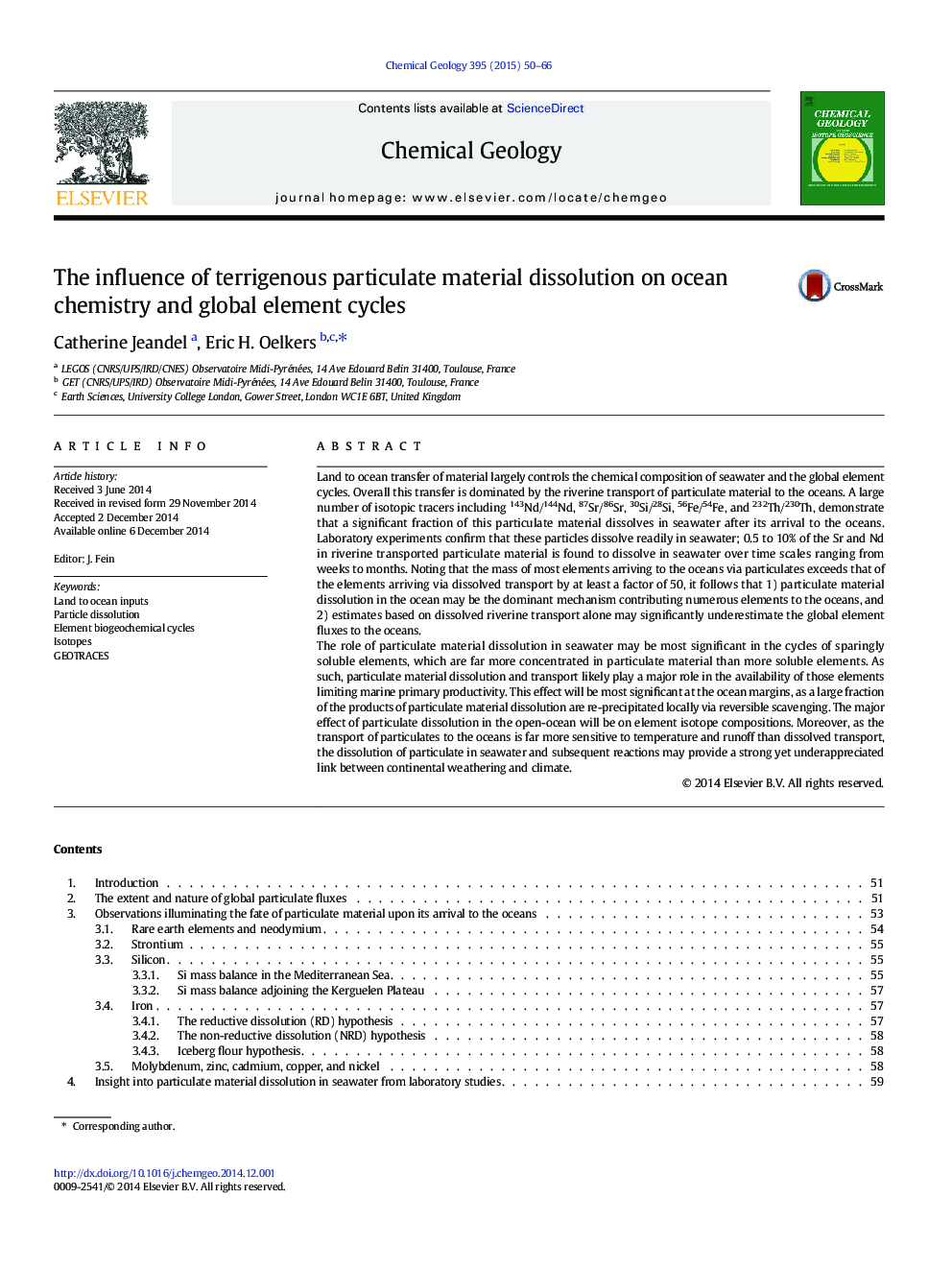| کد مقاله | کد نشریه | سال انتشار | مقاله انگلیسی | نسخه تمام متن |
|---|---|---|---|---|
| 4698573 | 1637578 | 2015 | 17 صفحه PDF | دانلود رایگان |
Land to ocean transfer of material largely controls the chemical composition of seawater and the global element cycles. Overall this transfer is dominated by the riverine transport of particulate material to the oceans. A large number of isotopic tracers including 143Nd/144Nd, 87Sr/86Sr, 30Si/28Si, 56Fe/54Fe, and 232Th/230Th, demonstrate that a significant fraction of this particulate material dissolves in seawater after its arrival to the oceans. Laboratory experiments confirm that these particles dissolve readily in seawater; 0.5 to 10% of the Sr and Nd in riverine transported particulate material is found to dissolve in seawater over time scales ranging from weeks to months. Noting that the mass of most elements arriving to the oceans via particulates exceeds that of the elements arriving via dissolved transport by at least a factor of 50, it follows that 1) particulate material dissolution in the ocean may be the dominant mechanism contributing numerous elements to the oceans, and 2) estimates based on dissolved riverine transport alone may significantly underestimate the global element fluxes to the oceans.The role of particulate material dissolution in seawater may be most significant in the cycles of sparingly soluble elements, which are far more concentrated in particulate material than more soluble elements. As such, particulate material dissolution and transport likely play a major role in the availability of those elements limiting marine primary productivity. This effect will be most significant at the ocean margins, as a large fraction of the products of particulate material dissolution are re-precipitated locally via reversible scavenging. The major effect of particulate dissolution in the open-ocean will be on element isotope compositions. Moreover, as the transport of particulates to the oceans is far more sensitive to temperature and runoff than dissolved transport, the dissolution of particulate in seawater and subsequent reactions may provide a strong yet underappreciated link between continental weathering and climate.
Journal: Chemical Geology - Volume 395, 24 February 2015, Pages 50–66
